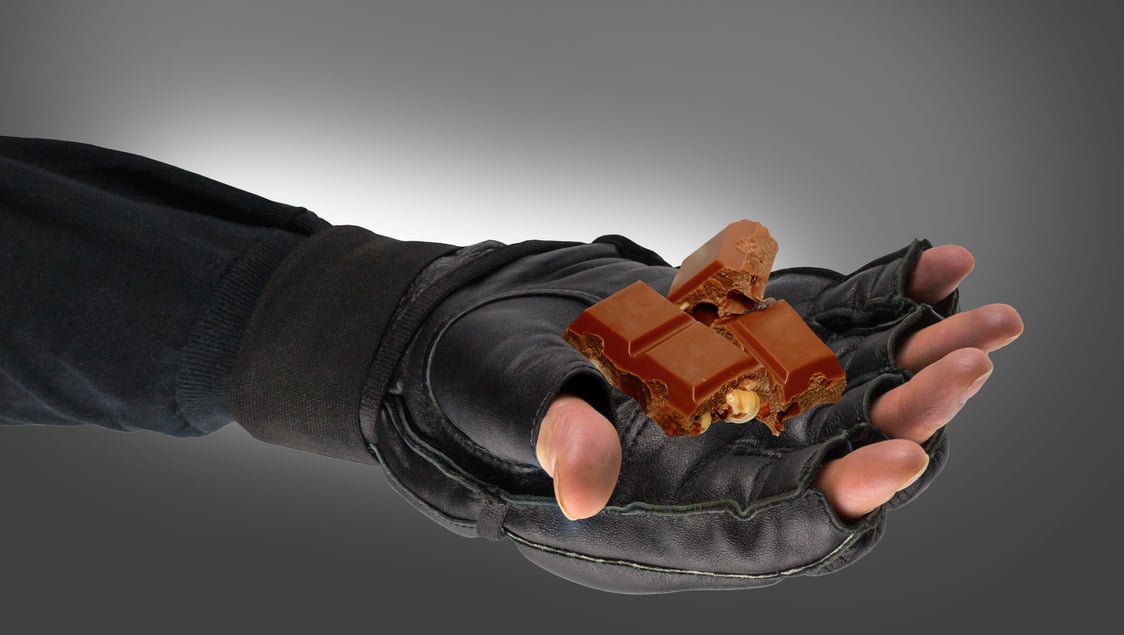
Issue 056
November 2009
What are the different types? When should I eat them? When should I avoid them? Should my supplements contain carbs or not? What types of carbs are best for a fighter?
Historically, carbohydrate have always been the main constituent of a typical western diet. More recently, diets such as The Atkins Diet and ketogenic diets have espoused the benefit of low / zero carbohydrate consumption. Then, due to the popularity of the Glycemic Index Diet, the type of carbohydrate came into consideration.
Not all carbohydrates all created equal; they can be divided into polysaccharides, oligosaccharides and monosaccharides. For simplicity, ‘complex carbohydrates’ and ‘simple sugars’ will suffice.
Complex carbohydrates are a group of molecules linked together. To provide energy the body has to break the molecules down; hence why it is often referred to as ‘slow-release’. Examples of complex carbohydrates include rice, pasta and oats.
Simple sugars don’t need to be broken down and provide an immediate source of energy. Examples of simple sugars include glucose / dextrose, sweets and chocolate.
GLYCEMIC INDEX USED
The glycemic index (GI) is a ranking system that rates carbohydrates on their blood-sugar impact. Simply, those with a higher GI value are digested more quickly than those with a lower value. Glycemic load takes the GI value and takes into account the amount of carbohydrate consumed – this is a more useful tool. Simple sugars tend to be higher glycemic than complex carbohydrates.
The above gives some information on types of carbohydrate, but the most relevant issue is do fighters need carbohydrate? For a fighter who is training several times a week, utilizing their aerobic and anaerobic energy systems, damaging their muscles and ultimately looking at improving performance, carbohydrate definitely has a place in a balanced diet. There is no doubt that low-carbohydrate diets can lead to fat loss, but a fighter’s priority is performance.
Looking at the roles of carbohydrate, fueling the body is a primary role. Carbohydrate is the body’s primary and preferred source of energy; without appropriate fuel, energy levels are compromised.
Whether it is a morning run, sparring or bag work, fuel is required. Think of your muscles as a fuel tank; the more fuel (glycogen) that is stored, the more energy you have.
REFUEL AFTER TRAINING
After a training session, fuel has been used and therefore needs to be replaced. All this comes from carbohydrates. It’s a cheesy analogy, but would you try and drive a car without any gas in? Hopefully not! So don’t put your body through rigorous training sessions without fuel either.
As fuel and recovery are so important, it stands to reason that carbs are required before, potentially during, and after training. A fighter should aim to consume the majority of their carbohydrate as complex, slow-release, carbohydrate. This helps to keep the muscles topped-up with fuel, providing energy and keeping blood sugar levels stable. Fruit helps to refuel the liver with energy – ideally the muscles and the liver should be fully fueled.
Eating lots of sugary foods during the day is likely to lead to cravings and increased fat storage. As the power to weight ratio is so important for a fighter, unnecessary fat storage should be avoided. Sugary foods should be eaten in moderation. Simple sugars are ideal after training to replenish depleted fuel levels. If you have a particularly intense session, or are training for a long duration, simple sugars during the session provides an immediate hit of energy.
LOSING WEIGHT
If fat loss is required, aim to eat most of your carbohydrate for breakfast and after training. The aim is to provide the body with carbohydrate when it needs it most – providing slow release energy in the morning (oats is a good example) and helping the body to recover and refuel post-training. Avoid supplements with a high sugar-content if fat loss is required.
If a fighter needs to put on weight, they need more calories. Carbohydrate can be consumed throughout the day – supplements with carbohydrates can provide excellent meal replacements as well as aiding recovery.
As many diets suggest, carbohydrates aren’t all bad. Just be aware of the types of carbohydrates you consume and when you consume them. It’s a lot easier training with them than without them!
ASK THE EXPERT Q&A
I’ve heard things such as chocolate can be good for you even though it’s full of sugar! When does something stop being good and become bad?
Chocolate is made from cocoa, seeds and sugar. Dark chocolate is often touted as a healthy food choice, primarily due to the polyphenol content. While the high polyphenol-content of dark chocolate has benefits, that’s not license to decimate kilograms of the stuff! Good and bad is overly simplistic: It’s all about moderation. Occasionally eating ‘bad’ foods will do you no harm, but you can’t eat endless amounts of ‘good’ foods either. For example, oats are a healthy food choice – but eating ten bowls a day will, in all likelihood, add too many calories to your diet and you’ll store them as fat. Eat chocolate in moderation; if you’re looking for health benefits opt for dark chocolate.
...










